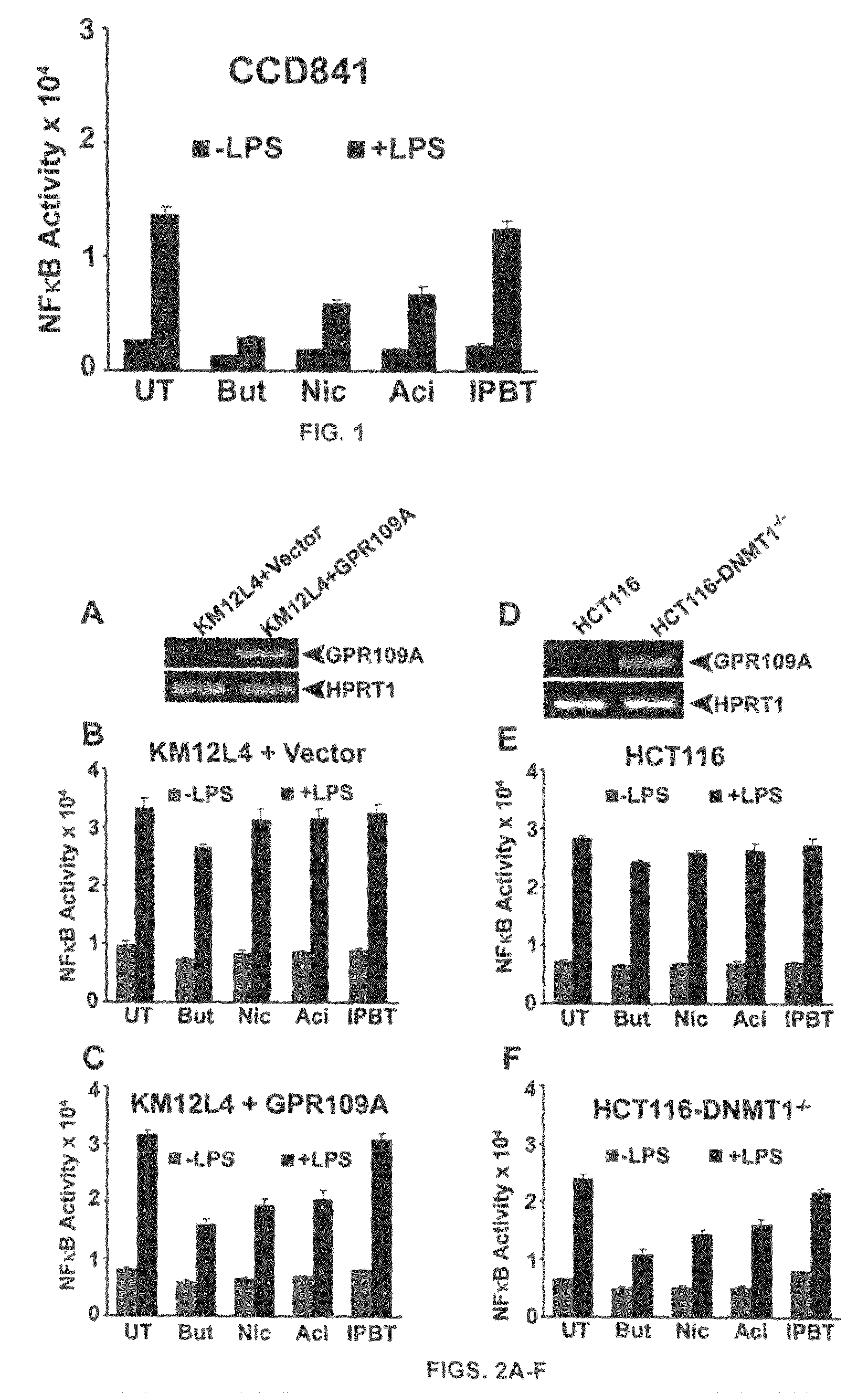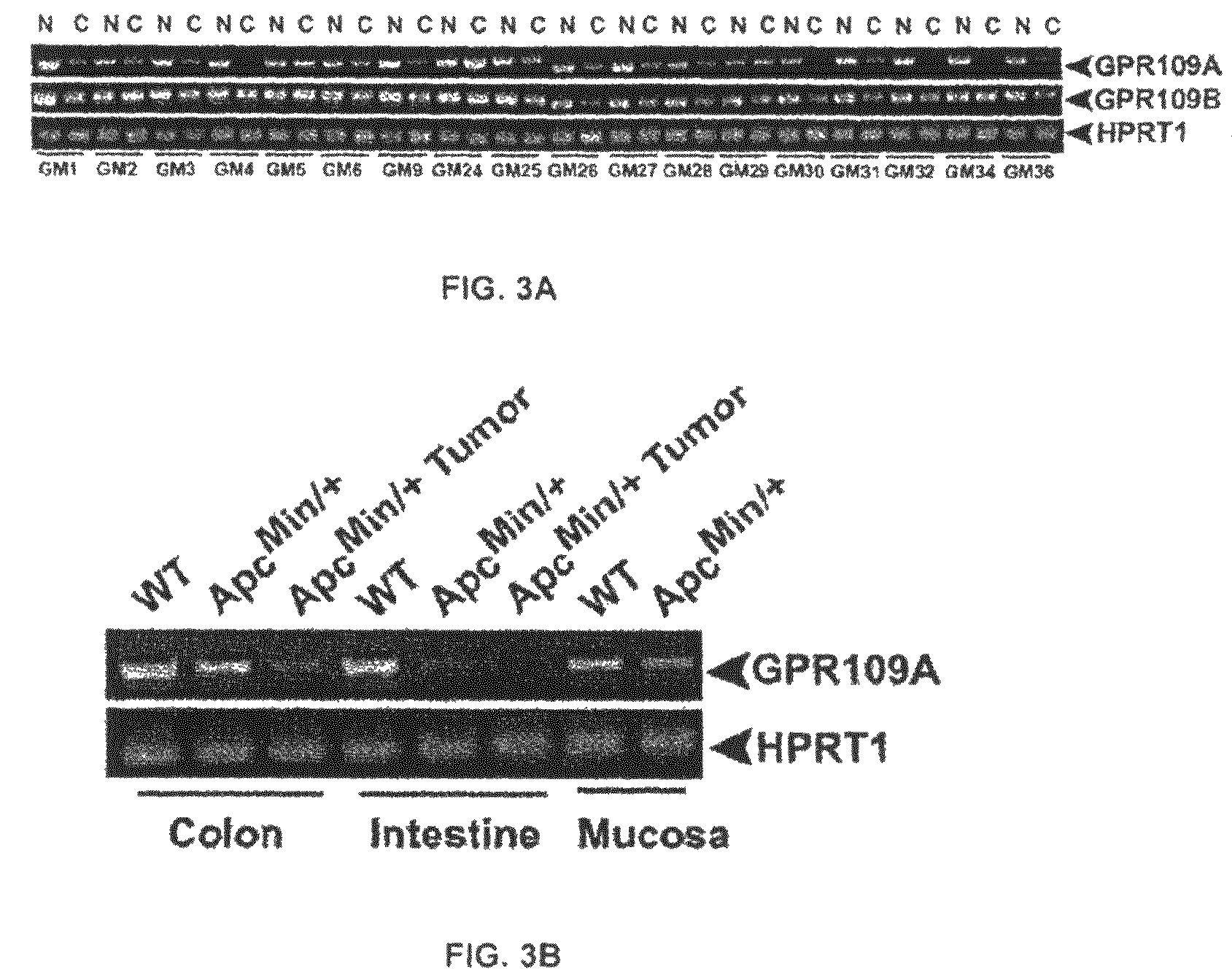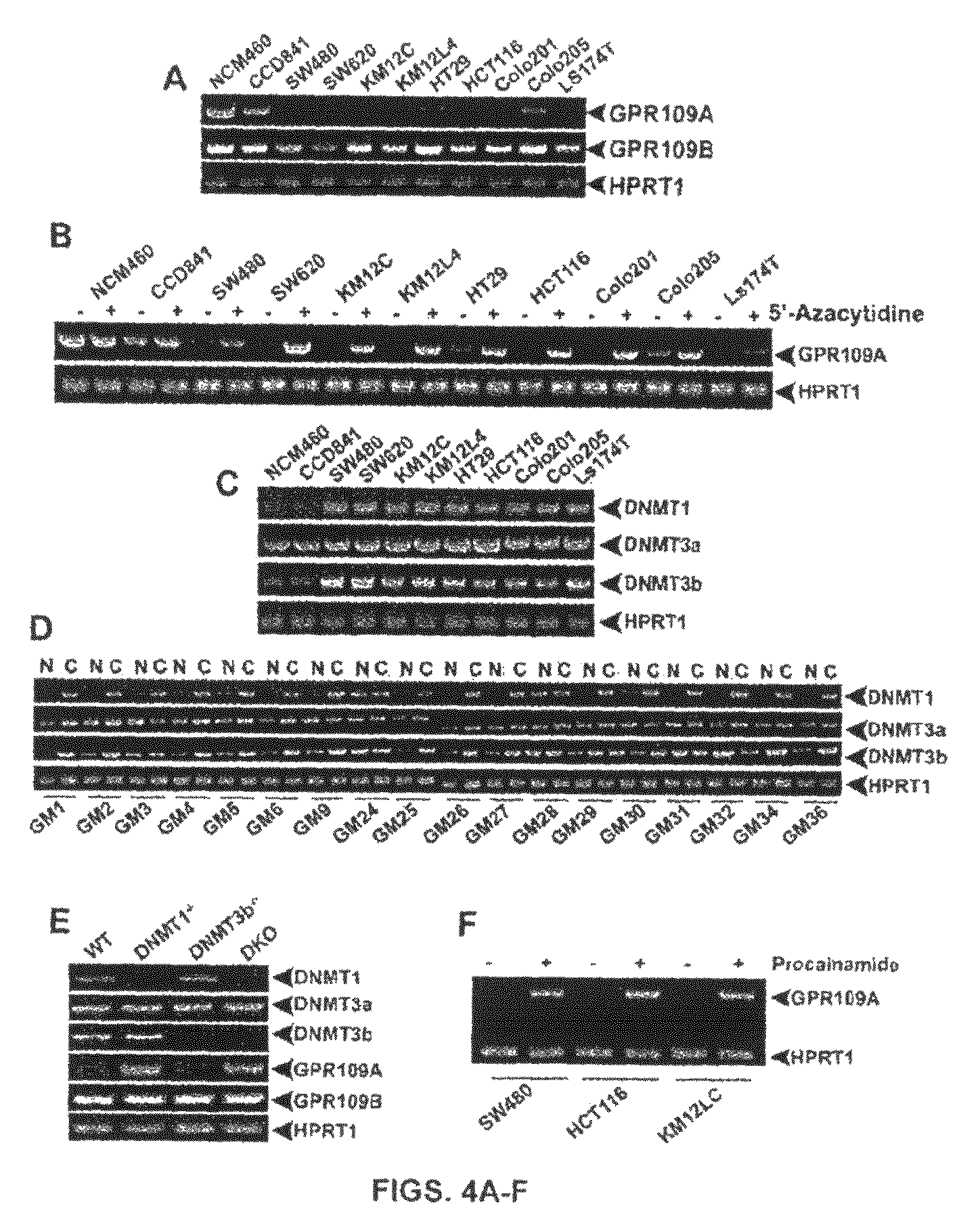Compositions comprising a GPR109 ligand for treating disorders of the digestive tract and/or cancer
a technology of gpr109 and composition, which is applied in the direction of drug compositions, biocide, heterocyclic compound active ingredients, etc., can solve the problems of increasing health costs in the us and other countries, affecting the health of the mucosa, and affecting the ability of the mucosa to be exposed to microorganisms or their products, so as to reduce the intracellular camp level
- Summary
- Abstract
- Description
- Claims
- Application Information
AI Technical Summary
Benefits of technology
Problems solved by technology
Method used
Image
Examples
example 1
Butyrate Elicits its Anti-Inflammatory Effects on Colonic Epithelial Cells via GPR109A
[0076]The bacterial fermentation product butyrate effectively suppresses the NF-κB promoter activity induced by the bacterial lipopolysaccharide in the normal colonic epithelial cell line CCD841. Several other studies have demonstrated similar anti-inflammatory effects of butyrate in colonic epithelial cells using alternative experimental approaches (Reviewed in Hamer et al. The role of butyrate on colonic function. Alimentary Pharmacology and Therapeutics 27: 104-119, 2008). All these studies exposed the colonic epithelial cells to extracellular butyrate and then monitored its anti-inflammatory effects. But, none of these studies has identified the effector molecule that transduces the observed anti-inflammatory effects of extracellular butyrate. A butyrate transporter (SLC5A8) and a butyrate receptor (GPR109A) are present in colonic and intestinal epithelial cells. It is believed that these two p...
example 2
Butyrate Suppresses Dendritic Cell Maturation via SLC5A8
[0080]The development of bone marrow-derived dendritic cells is inhibited by butyrate. Various short-chain fatty acids as well as nicotinate were evaluated for their ability to block the development of dendritic cells. These data showed that butyrate, pyruvate, and propionate were able to block the development whereas acetate and nicotinate had no effect. All of these monocarboxylates are substrates for SLC5A8, but only butyrate, pyruvate, and propionate function inside the cells as HDAC inhibitors. The findings that only those monocarboxylates which function as HDAC inhibitors block the dendritic cell development suggest the involvement of SLC5A8 in the process because if the inhibitors are not taken into the cells via SLC5A8, they would not have any effect. Butyrate and nicotinate are also ligands for the receptor GPR109A, but butyrate is able to block the dendritic cell development whereas nicotinate is not, indicating that ...
example 3
Comparison of GPR109A Expression in the Intestinal Tract Between Conventional Mouse and Germ Free Mouse
[0081]GPR109A is a G-protein-coupled receptor for butyrate. It is expressed in the small intestine as well as in the colon. The expression is restricted to the lumen-facing apical membrane where the receptor can come in contact with butyrate in the lumen. Butyrate is a fermentation product of commensal bacteria in the intestinal tract. Therefore, the question is whether the presence or absence of bacteria in the intestinal tract would influence the expression of this receptor in the host intestinal tract. If the bacterial metabolite butyrate is the ligand for the receptor, what would happen to the expression of the receptor if the ligand is not there in the intestinal lumen? This question was addressed by comparing the expression of GPR109A in the intestinal tract (ileum and colon, the segments of the intestinal tract which are exposed to significant bacterial colonization) between...
PUM
| Property | Measurement | Unit |
|---|---|---|
| pH | aaaaa | aaaaa |
| body weight | aaaaa | aaaaa |
| pharmaceutical composition | aaaaa | aaaaa |
Abstract
Description
Claims
Application Information
 Login to View More
Login to View More - R&D
- Intellectual Property
- Life Sciences
- Materials
- Tech Scout
- Unparalleled Data Quality
- Higher Quality Content
- 60% Fewer Hallucinations
Browse by: Latest US Patents, China's latest patents, Technical Efficacy Thesaurus, Application Domain, Technology Topic, Popular Technical Reports.
© 2025 PatSnap. All rights reserved.Legal|Privacy policy|Modern Slavery Act Transparency Statement|Sitemap|About US| Contact US: help@patsnap.com



